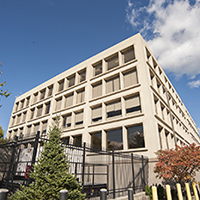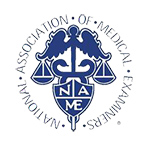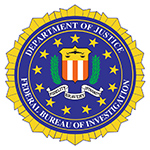What authority does the Coroner have in regard to investigation into the circumstances of the death?
SECTION 313.13
(A) The coroner, any deputy coroner, an investigator appointed pursuant to section 313.05 of the Revised Code, or any other person the coroner designates as having the authority to act under this section may go to the dead body and take charge of it. Whether and when an autopsy is performed shall be determined under sections 313.121 [313.12.1] and 313.131 [313.13.1] of the Revised Code. If an autopsy is performed by the coroner, deputy coroner, or pathologists, a detailed description of the observations written during the progress of such autopsy, or as soon after such autopsy as reasonably possible, and the conclusions drawn from the observations shall be filed in the office of the coroner.
If he takes charge of and decides to perform, or performs, an autopsy on a dead body under section 313.121 [313.12.1] or 313.131 [313.13.1] of the Revised Code, the coroner, or in his absence, any deputy coroner, under division (E) of section 2108.02 of the Revised Code, may waive his paramount right to any donated part of the dead body.
(B) If the office of the coroner is notified that a person who was the operator of a motor vehicle that was involved in an accident or crash was killed in the accident or crash or died as a result of injuries suffered in it, the coroner, deputy coroner, or pathologist shall go to the dead body and take charge of it and administer a chemical test to the blood of the deceased person to determine the alcohol, drug, or alcohol and drug content of the blood. This division does not authorize the coroner, deputy coroner, or pathologist to perform an autopsy, and does not affect and shall not be construed as affecting the provisions of section 313.131 [313.13.1] of the Revised Code that govern the determination of whether and when an autopsy is to be performed.
SECTION 313.17
The coroner or deputy coroner may issue subpoenas for such witnesses as are necessary, administer to such witnesses the usual oath, and proceed to inquire how the deceased came to his death, whether by violence to self or from any other persons, by whom, whether as principals or accessories before or after the fact, and all circumstances relating thereto. The testimony of such witnesses shall be reduced to writing and subscribed to by them, and with the findings and recognizance's mentioned in this section, shall be kept on file in the coroner's office, unless the county fails to provide such an office, in which event all such records, findings and recognizance's shall be kept on file in the office of the clerk of the court of common pleas. The coroner may cause such witnesses to enter into recognizance, in such sum as is proper, for their appearance to give testimony concerning the matter. He may require any such witnesses to give security for their attendance, and, if any of them fails to comply with his requirements he shall commit such person to the county jail until discharged by due course of law. In case of the failure of any person to comply with such subpoena, or on the refusal of a witness to testify to any matter regarding which he may lawfully be interrogated, the probate judge, or a judge of the court of common pleas, on application of the coroner, shall compel obedience to such subpoena by attachment proceedings as for contempt. A report shall be made from the personal observation by the coroner or his deputy of the corpse, from the statements of relatives or other persons having any knowledge of the facts, and from such other sources of information as are available, or from the autopsy.
Deaths Reportable to the Medical Examiner
 An official website of the Cuyahoga County government. Here’s how you know
An official website of the Cuyahoga County government. Here’s how you know






